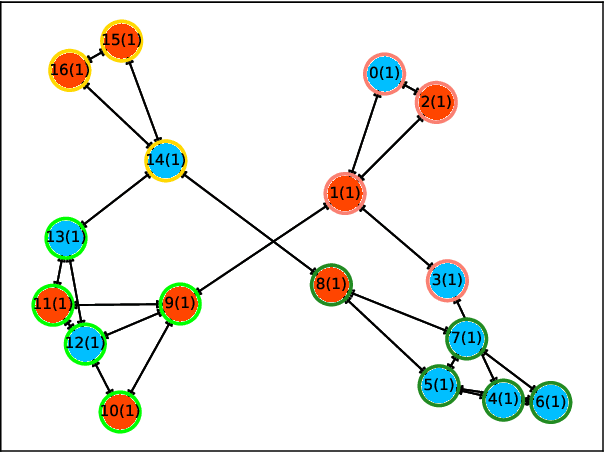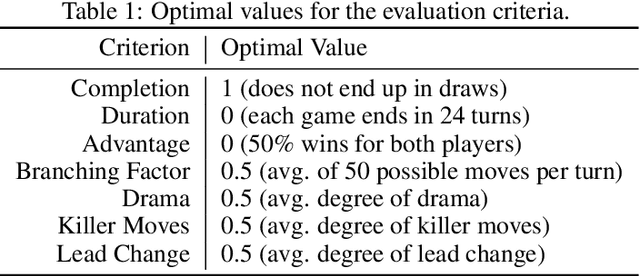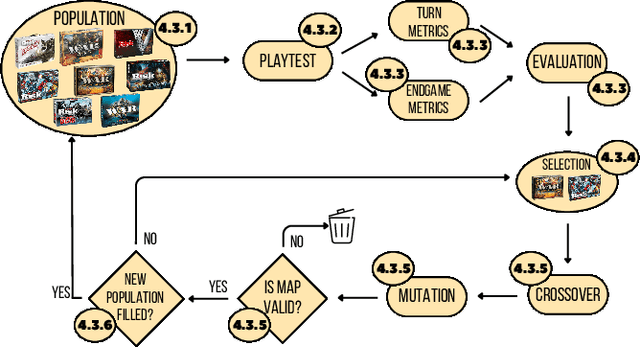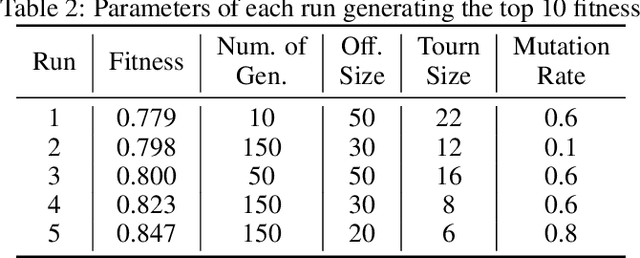Anderson Rocha Tavares
Usando LLMs para Programar Jogos de Tabuleiro e Variações
Nov 07, 2025Abstract:Creating programs to represent board games can be a time-consuming task. Large Language Models (LLMs) arise as appealing tools to expedite this process, given their capacity to efficiently generate code from simple contextual information. In this work, we propose a method to test how capable three LLMs (Claude, DeepSeek and ChatGPT) are at creating code for board games, as well as new variants of existing games.
A Taxonomy of Collectible Card Games from a Game-Playing AI Perspective
Oct 08, 2024Abstract:Collectible card games are challenging, widely played games that have received increasing attention from the AI research community in recent years. Despite important breakthroughs, the field still poses many unresolved challenges. This work aims to help further research on the genre by proposing a taxonomy of collectible card games by analyzing their rules, mechanics, and game modes from the perspective of game-playing AI research. To achieve this, we studied a set of popular games and provided a thorough discussion about their characteristics.
Evolutionary Tabletop Game Design: A Case Study in the Risk Game
Oct 30, 2023



Abstract:Creating and evaluating games manually is an arduous and laborious task. Procedural content generation can aid by creating game artifacts, but usually not an entire game. Evolutionary game design, which combines evolutionary algorithms with automated playtesting, has been used to create novel board games with simple equipment; however, the original approach does not include complex tabletop games with dice, cards, and maps. This work proposes an extension of the approach for tabletop games, evaluating the process by generating variants of Risk, a military strategy game where players must conquer map territories to win. We achieved this using a genetic algorithm to evolve the chosen parameters, as well as a rules-based agent to test the games and a variety of quality criteria to evaluate the new variations generated. Our results show the creation of new variations of the original game with smaller maps, resulting in shorter matches. Also, the variants produce more balanced matches, maintaining the usual drama. We also identified limitations in the process, where, in many cases, where the objective function was correctly pursued, but the generated games were nearly trivial. This work paves the way towards promising research regarding the use of evolutionary game design beyond classic board games.
Hybrid Minimax-MCTS and Difficulty Adjustment for General Game Playing
Oct 25, 2023Abstract:Board games are a great source of entertainment for all ages, as they create a competitive and engaging environment, as well as stimulating learning and strategic thinking. It is common for digital versions of board games, as any other type of digital games, to offer the option to select the difficulty of the game. This is usually done by customizing the search parameters of the AI algorithm. However, this approach cannot be extended to General Game Playing agents, as different games might require different parametrization for each difficulty level. In this paper, we present a general approach to implement an artificial intelligence opponent with difficulty levels for zero-sum games, together with a propose of a Minimax-MCTS hybrid algorithm, which combines the minimax search process with GGP aspects of MCTS. This approach was tested in our mobile application LoBoGames, an extensible board games platform, that is intended to have an broad catalog of games, with an emphasis on accessibility: the platform is friendly to visually-impaired users, and is compatible with more than 92\% of Android devices. The tests in this work indicate that both the hybrid Minimax-MCTS and the new difficulty adjustment system are promising GGP approaches that could be expanded in future work.
 Add to Chrome
Add to Chrome Add to Firefox
Add to Firefox Add to Edge
Add to Edge